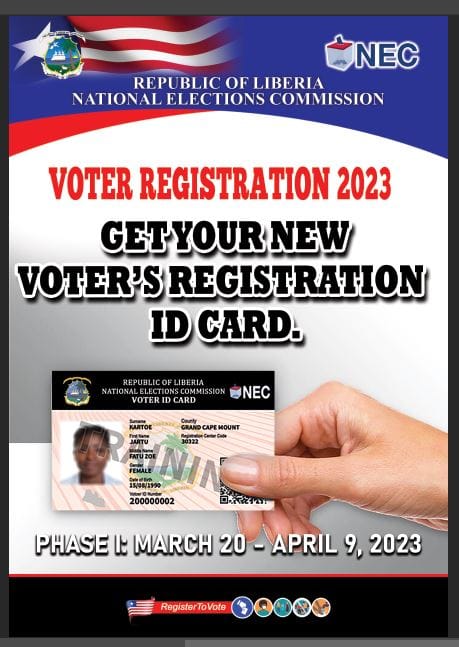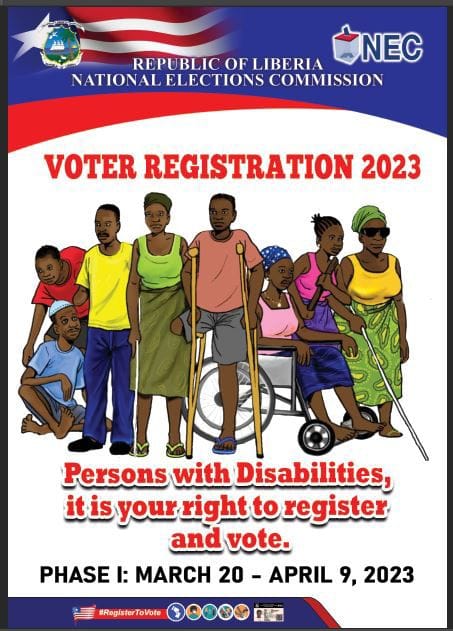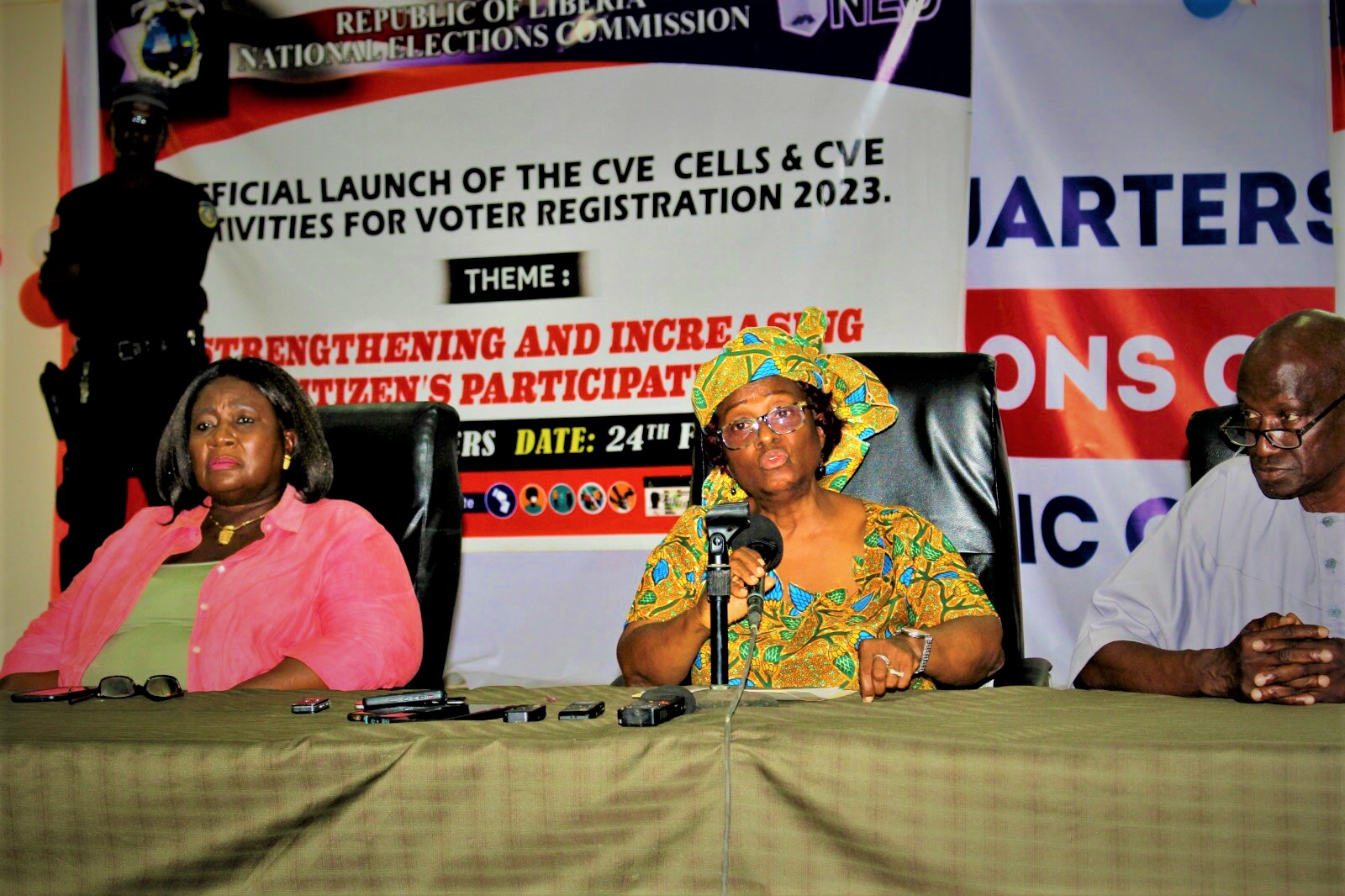Liberians in and out of the Country are earnestly concerned about the conducting of free, fair transparent, and peaceful elections, as NEC announces the first phase of the Biometric Voter’s Registration exercise which is scheduled to commence on March 20th and will run up until April 9th, 2023.
To continue, as the anxiety of Liberians rises, many concerns are being raised, and amongst them are questions such as
Are the materials for the Voter registration process in the Country and have they been tested?


Liberians are concerned because, we don’t want the exercise, to be the same as in the case of the 2023 National Population and Housing Census which was characterized by a lot of hiccups.
To retrospect, the NEC Boss Davidetta Brown Lansanah, when she appeared before the Legislature said due to the cut down of the previous amount ($91m US), elections materials were going to be limited.
That being uttered, she furthered that everything humanly possible has been done including the testing of equipment and training was ongoing simultaneously in the first six Counties of the registration.
It can be recollected that in previous election years, election materials were delayed and did not reach voting precincts as planned, and caused registrants to waste more time at the registration centers.

If all goes as planned, the Biometric Voter Registration will start on March 20th and end on May 11th, 2023 across the Country. It will be done in two phases. Phase one includes Bomi, Gbarpolu, Margibi, Grand Bassa, Grand Cape Mount, and Montserrado Counties, which runs from March 20th to April 9th while phase two, will be Bong, Grand Gedeh, Maryland, Grand Kru, Nimba, Lofa, River Gee, River Cess, and Sinoe Counties and said process will occur from April 21st – to May 11th, 2023.
Furthermore, Liberians are encouraged to turn out in their numbers to register as registration is the first pillar of every electoral process. In the same way, it enables candidates to generally pay close attention to communities with high voter registration and turnout rates.
A voter register database can be used by an Election Management Body to assist various aspects of the electoral process, such as election planning and redistricting.
Meanwhile, Voter registration data can also be aggregated to various geographic levels to assist with redrawing electoral boundaries or redistricting. Where a redistricting regime requires expected future voter numbers to be taken into account, a voter registration database can be used to plot voter mobility and determine growth trends over time.

